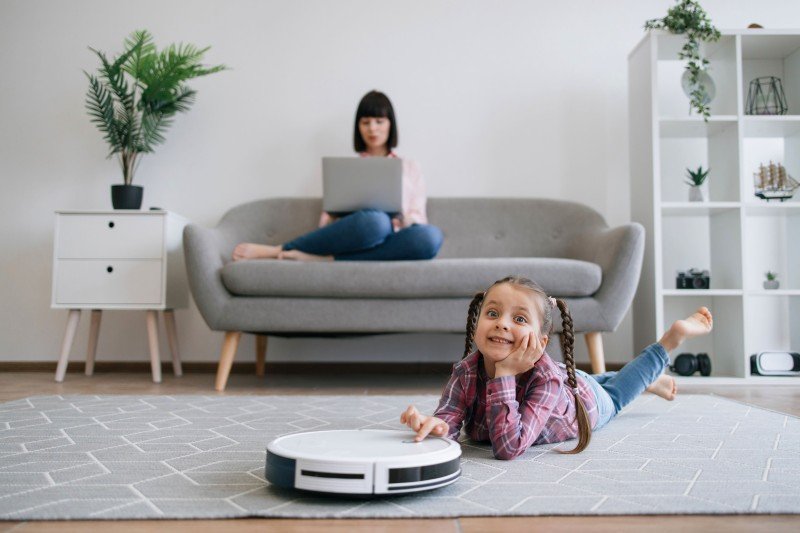Do Not Make This Blunder On Your Robot Vacuum Cleaner
페이지 정보

본문
The Rise of Robot Vacuum Cleaners in Industrial Settings
Over the last few years, the landscape of industrial cleaning has actually seen a considerable improvement with the introduction of robot vacuum cleaners. These automated gadgets are not simply a novelty for homes; they have gained traction in storage facilities, making plants, and other industrial environments. This short article checks out the performance, benefits, and factors to consider of best buy robot vacuum Best Amazon Vacuum within the industrial context, while addressing some often asked questions.
What are Robot Vacuum Cleaners?
Robot vacuum cleaners are automated cleaning devices equipped with advanced sensors and technology that allow them to navigate around areas, detect dirt, and vacuum surface areas without direct human intervention. In industrial settings, they are designed to manage a range of debris types, assist in routine cleaning schedules, and enhance total functional effectiveness.

Table 1: Key Features of Industrial Robot Vacuum Cleaners
| Feature | Description |
|---|---|
| Navigation | Utilizes LiDAR or camera-based navigation for exact mapping. |
| Size and Design | Compact and robust style to fit in tight areas and hold up against hard environments. |
| Self-Charging | Instantly go back to its docking station for charging. |
| Dustbin Capacity | Larger dustbin matched for industrial particles sizes and volumes. |
| Programs | Can be configured for scheduling and specific cleaning jobs. |
| Data Collecting | Equipped with sensing units to collect information for maintenance and cleaning analysis. |
Benefits of Robot Vacuum Cleaners in Industrial Settings
The adoption of robot floor cleaner vacuum comes with a myriad of benefits:
Increased Efficiency:
- 24/7 Operation: Unlike human cleaners, robots can operate around the clock, adding to continuous tidiness without downtime.
- Time-Saving: Automated cleaning enables employees to focus on core jobs instead of cleaning tasks.
Expense Savings:
- Labor Costs: Maintaining a robot vacuum can reduce the requirement for a large cleaning staff, decreasing general labor expenses.
- Operational Efficiency: With enhanced tidiness and lowered downtime due to maintenance concerns, organizations can save on operational expenses.
Enhanced Safety:
- Reduced Risk: By decreasing the human involvement in harmful cleaning environments, the risk of mishaps is decreased.
- Consistent Cleaning: Robot vacuums guarantee that areas are consistently cleaned, minimizing slip threats and unhealthy environments.
Increased Flexibility:
- Customizable Cleaning Routes: These machines can be set to tidy particular locations or floors, adapting to changing industrial layouts.
- Range of Surfaces: Industrial robot vacuums can manage different flooring types, from concrete to tiles, making them versatile.
Environmental Impact:
- Sustainable Cleaning Solutions: Many designs use very little water and ecologically friendly cleaning services, aiding in corporate sustainability efforts.
Table 2: Industrial Applications of Robot Vacuum Cleaners
| Industry | Application |
|---|---|
| Production | Cleaning assembly line and assembly areas. |
| Warehousing | Keeping clean and organized storage spaces. |
| Food Processing | Guaranteeing cleanliness in delicate areas to satisfy health requirements. |
| Pharmaceuticals | Preserving ultra-clean environments for production. |
| Logistics and Distribution | Keeping pathways clear for effective operation. |
Obstacles and Considerations
While the advantages are substantial, organizations ought to likewise think about a number of difficulties:
- Initial Investment: The in advance expenses of purchasing industrial robot vacuum can be substantial, though long-term savings might offset this expenditure.
- Repair and maintenance: Regular upkeep is necessary to keep the robotic systems functioning efficiently, and repair work can sustain extra expenses.
- Integration: Businesses might need to integrate these machines into existing workflows, which can need time and adjustment.
- Training and Support: Staff might require training to successfully manage these devices, particularly when troubleshooting or programming is required.
FAQs About Robot Vacuum Cleaners in Industrial Settings
1. Just how much do industrial robot smart vacuum cleaner cleaners cost?
The cost can range from a couple of thousand to 10s of countless dollars, depending on requirements, functions, and brand.
2. What kinds of surfaces can they clean up?
Robot vacuum cleaners appropriate for numerous surface areas including carpets, tiles, concrete, and even some wooden floors.
3. How do they navigate intricate industrial environments?
Many industrial robot vacuums use innovative navigation systems like LiDAR, cameras, and sensing units to map out and adapt to their surroundings for efficient cleaning.
4. Can they clean up large locations without human intervention?
Yes, industrial robot vacuums are developed to clean comprehensive areas with preset routes and schedules, efficiently operating autonomously.
5. Are these robots ecologically friendly?
Lots of designs focus on efficiency and lower water usage, making them a more environmentally friendly cleaning choice compared to standard techniques.
The introduction of robot vacuum into industrial environments represents an exceptional advancement in cleaning innovation. With their ability to enhance effectiveness, reduce labor costs, and preserve safety, these automated systems are paving the way for smarter and cleaner industrial operations. While difficulties may exist, the long-lasting advantages and technological advancements are motivating for markets seeking to improve their cleaning procedures. As technology continues to progress, we can anticipate additional developments in smart robot vacuum that will transform industrial cleaning practices much more.
- 이전글The 9 Things Your Parents Teach You About ADHD In Adults Test 25.05.19
- 다음글10 Things That Your Family Teach You About Double Oven And Microwave Built In 25.05.19
댓글목록
등록된 댓글이 없습니다.




















